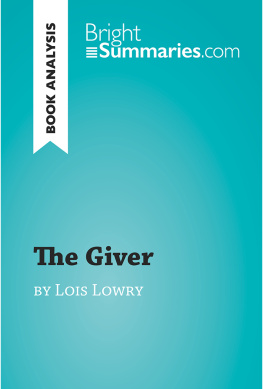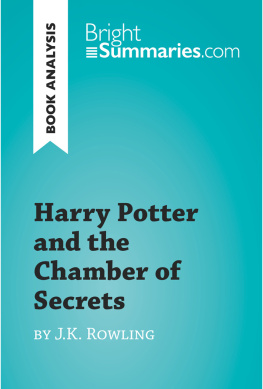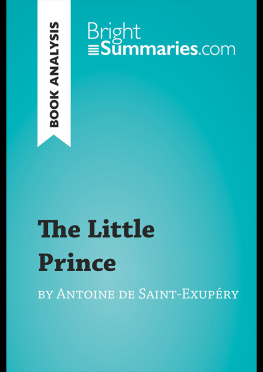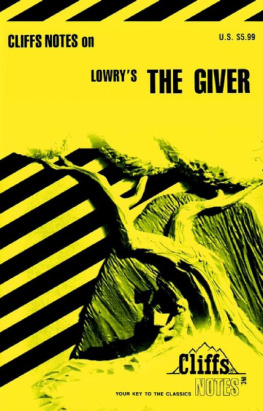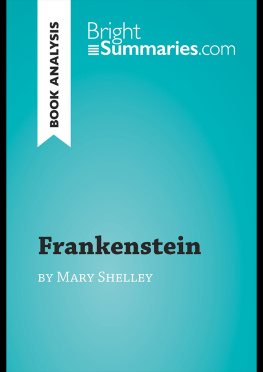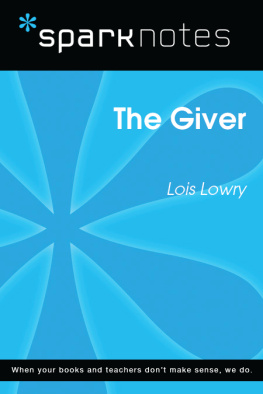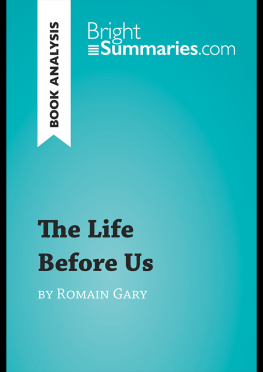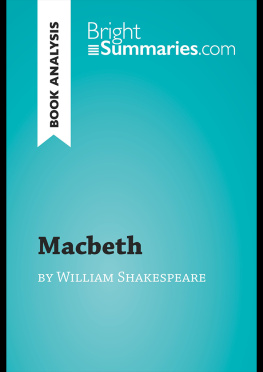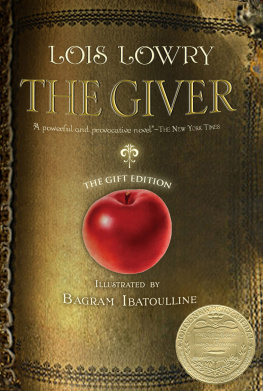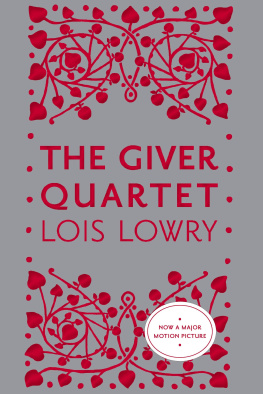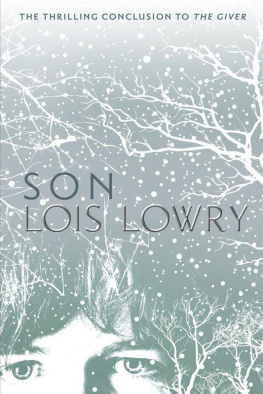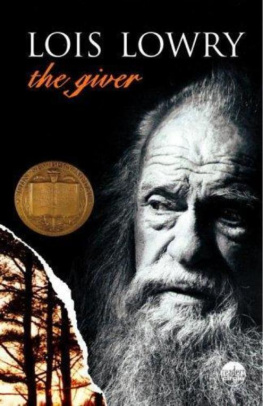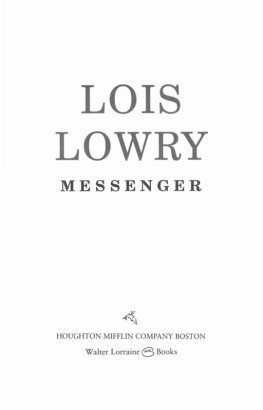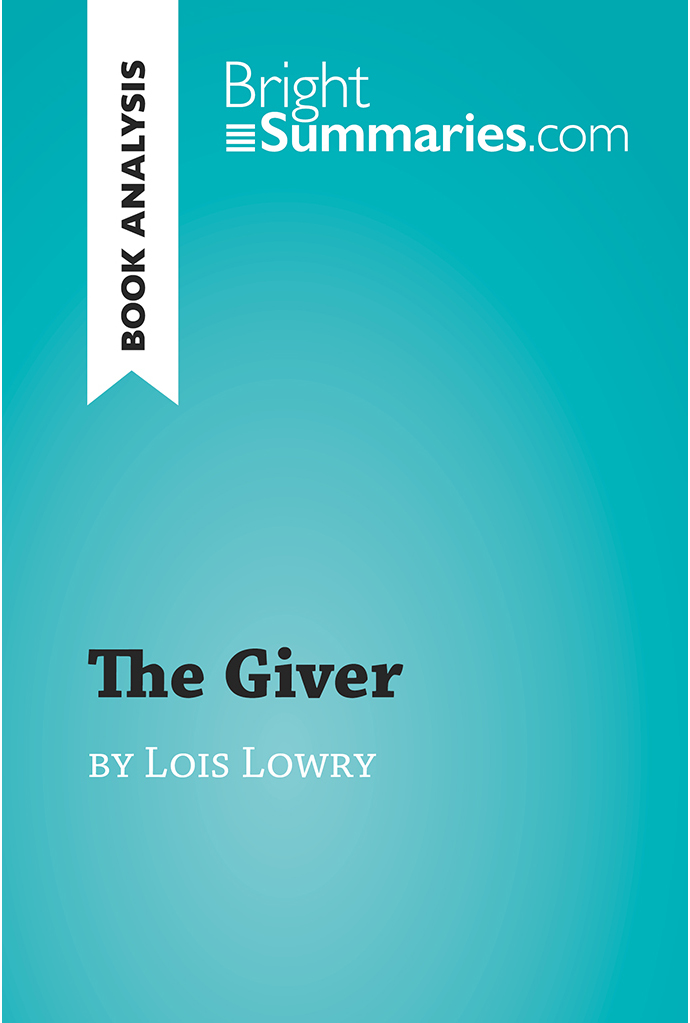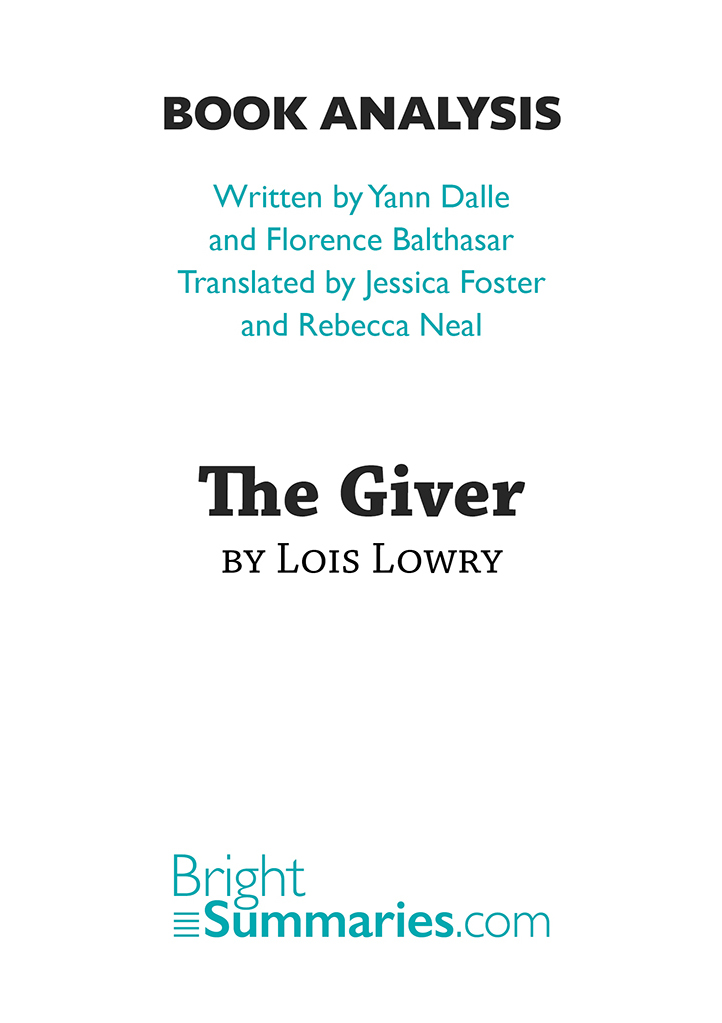The Giver is the first novel in the The Giver Quartet series and is aimed at young adult readers. It draws inspiration from the great works of dystopian fiction (meaning works that describe an imaginary totalitarian society and the constraints it places on the lives of its citizens) of the first half of the 20 th century, such as Brave New World (1932) by Aldous Huxley (English writer, 1894-1963) and 1984 (1949) by George Orwell (English writer, 1903-1950).
It tells the story of Jonas, a young boy living in a meticulously organised futuristic society, who is called upon to become the Receiver of Memory, the only bearer of the communitys collective memory, with everyone else living in blissful ignorance of their past. He begins learning about the role from his predecessor, and comes to realise that his little world is far less idyllic than he has always believed.
SUMMARY
AN UNUSUAL BOY
Jonas is an 11-year-old boy who lives in a futuristic society where daily life is regulated by very strict laws. The stability of the community as a whole depends upon the extreme limitation of personal freedoms. For example, citizens are not allowed to choose their own clothes, their job, their childrens names or even their spouse. Procreation is also forbidden. Pills are provided to supress individuals emotions and sexual desires, and newborns (new-children) are conceived in special centres. Any transgressions are severely punished, either by a message broadcast to the public over loudspeakers, or by a warning which may have further consequences: every day, weak children, the elderly and criminals are released, a mysterious word which the residents use without really understanding what it means, and that they equate with something called going Elsewhere.
Jonas is growing up in this colourless world, where every detail of every individuals private life is painstakingly regulated. His family take meticulous care of him, but do not really show him any love. His sister is still very young, his mother works in the Department of Justice, and his father, who works as a Nurturer in the Nurturing Centre for newborns, is concerned about the health of one of the new-children, Gabriel. The baby is not growing as quickly as he should be, so Jonass father brings him home, where he can look after him more easily.
Two things set Jonas apart from the other citizens: he has pale eyes, which are very rare in his community (there are only three other individuals with pale eyes: a younger girl he has seen before, baby Gabriel, and the Receiver of Memory, a man whom he rarely sees), and he has the Capacity to see Beyond (p. 79), that is, to see the world differently. Objects often change their appearance for a few seconds while he observes them, although this gift is not immediately apparent and only begins manifesting itself gradually. In particular, episodes become more frequent as the Ceremony of Twelve approaches. During this annual ceremony, all the children who are about to turn 12 find out what job has been assigned to them by the Elders.
THE RECEIVER OF MEMORY
Jonas learns that he is to become the new Receiver of Memory, a unique and prestigious role, but also a very difficult one. From now on, he is allowed to break a certain number of rules: he is no longer obliged to attend certain ceremonies, can ask all the questions he wants and is permitted to lie. He is also exempt from the law which states that all individuals have to recount their dreams at the morning ritual.
On the other hand, he can no longer take medication, unless his job requires it (part of the transmission of memory involves feeling all the emotions and sensations linked to these memories, including pain). Finally, he is absolutely forbidden from explaining the nature of his apprenticeship to other people.
Every day after school, he goes to the house of the man whom he will soon replace to begin his training. He is an old man with pale eyes, who has been left exhausted by his Assignment and has lived in profound solitude for a long time. This does not stop him from being respected by his community, who nickname him The Giver.
For his first lesson, the Giver asks Jonas to lie down and then places his hands on him. A strange sensation immediately fills the boys body, and he immediately imagines himself on a sled hurtling down the snowy slopes of a mountain. This is an incomprehensible experience, as Jonas has never seen a real sled, snow or mountains in his life. He has just witnessed a memory, the first fragment of the vast collective memory that the Giver has begun passing on to him. As the days go by, Jonas begins to understand his role: he is in charge of all of the communitys memories. In a world where people no longer store their own memories in their minds, it is his responsibility to guard them, so that his fellow citizens can live free from worry. Without him, dangerous memories, such as the biting cold of the snow or painful recollections of war, could incite fear and panic and endanger the fragile balance of the community.
This is the beginning of a new life for Jonas, who experiences emotions that he was previously unaware of. He discovers joy, passion, desire and love, but also sadness and heartbreak. He comes to understand that many emotions existed before, but they were eliminated by the community, buried under laws or dissolved by the medication that people have to take each day. Finally, Jonas discovers colour as the memories reveal a new, colourful world, which he had already glimpsed before, when his power of seeing-beyond manifested itself.
However, all of these discoveries are accompanied by a growing sense of solitude, as Jonas would love to be able to tell other people what he has learnt, but he cannot. He tries in vain to pass on memories to his friends and family; nobody is receptive, apart from Gabriel, the baby with pale eyes that his father is looking after.
A FLAWED SOCIETY
A year passes, during which time Jonas gradually changes his mind about his community. He realises that, by pushing out the bad memories, his fellow citizens have also removed the good ones. In their attempts to eliminate suffering, fear and the excesses caused by passion, the laws have also extinguished love, joy, desire and many other human emotions, and removed all traces of individuality. He is seized by an urge to rebel, and this desire grows even stronger after a new and terrible revelation.

